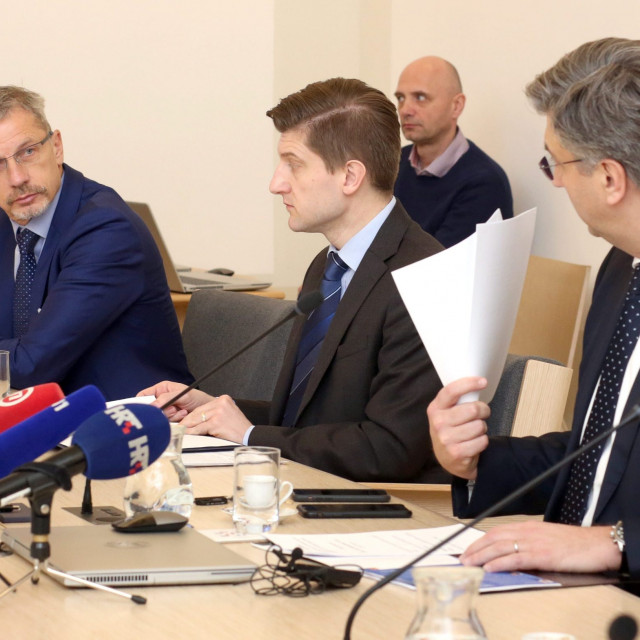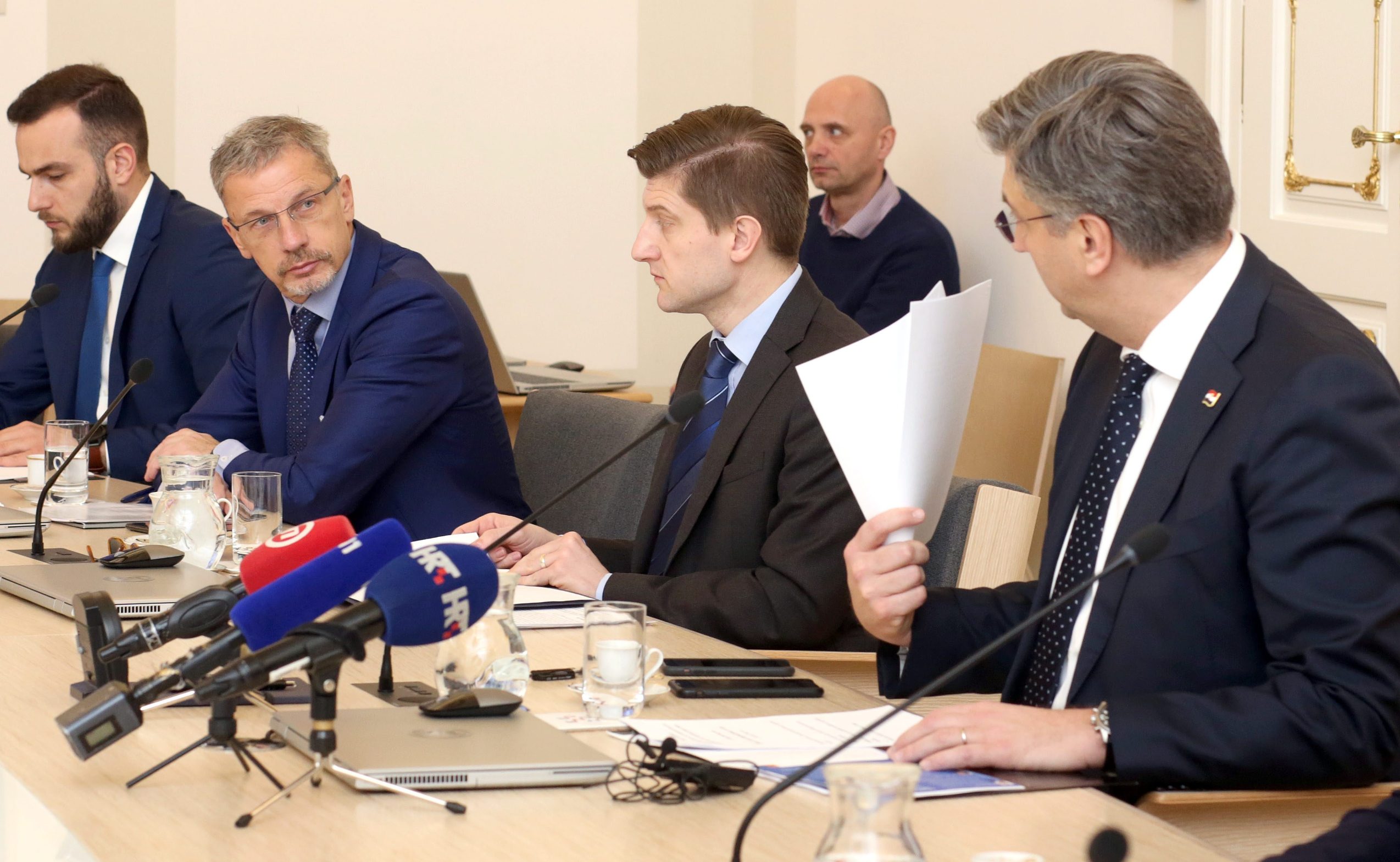
Early in July 2019 Croatia sent a letter of intent to join ERM II, along with an action plan containing reform measures that need to be implemented by May this year when the European Central Bank (ECB) is expected to deliver its decision on Croatia joining the banking union, i.e. on establishing close cooperation with the Croatian National Bank (HNB).
The fourth meeting of the National Council for the Adoption of the Euro as legal tender in Croatia was held on Wednesday. Speaking to the press the meeting, Maric said that currently almost half of the 19 measures in 6 different areas that Croatia committed to have been fulfilled. Six have been met entirely, three partially and the remaining nine are underway. He expects that all the remaining measures will have been fulfilled before the end of Croatia's presidency of the EU, or even earlier.
After that, depending on the results of the analysis of the quality of the portfolio, further talks will be held with European institutions regarding the next steps in the ERM II process, added Maric.
The measures implemented include the law on credit institutions, rules on the register of beneficial owners, amendments to the law on institutions, the law on the rights and duties of state officials, and so on. Among the laws that still need to be adopted are those relating to unassessed construction land, which is currently in procedure, and tenders for the sale of shares in about 90 state-owned companies.
HNB Governor Boris Vujcic said that the quality of Croatian banks was being examined as one of the conditions for the ECB's decision on close cooperation and Croatia's admission to the banking union.
He said that so far five Croatian banks selected by the ECB had been subjected to a stress test, and an examination of the quality of bank assets was now underway and should be completed soon, said Vujcic.
Plenkovic: Croatia is already highly euroised
According to a government press release, Prime Minister Andrej Plenkovic said that adoption of the euro as legal tender and joining the Schengen area were the two objectives of Croatia's deeper integration with the European Union.
Meeting the criteria for the adoption of the euro as well as for macroeconomic and fiscal stability is one of Croatia's key objectives, he underscored.
"In 2017, during the term of this government, Croatia exited the excessive deficit procedure and last year we were assessed as no longer recording macroeconomic imbalances," he said and added that Croatia used this status and sent a letter of intent to join ERM II, which precedes the introduction of the euro.
Plenkovic said that Croatia is the smallest EU member state that is currently not in the euro area.
About 61% of loans in Croatia are foreign currency loans or those pegged to a foreign currency and 51% of deposits are in euro or in kuna indexed to the euro.
"The message is that Croatia is already a highly euroised country," added Plenkovic.
About 56% of Croatia's commodity exports go to euro-area countries and 66% of spending by foreign tourists is generated by those from countries in the euro area, he said.






Komentari
0